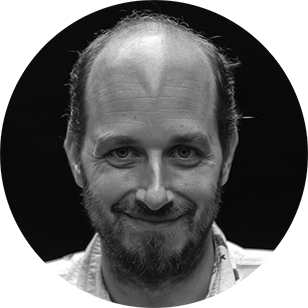Why Stranger Things' nostalgia isn't quite as magical in season 3
An immovable object being pulled by an irresistible force


I've been thinking about why the third season of Netflix's Stranger Things didn't do much for me. It might be that the product placement is getting too thirsty (Have a Coke!), or that the game of "spot the pop culture reference" is becoming a little predictable. It might be that the season's arc is the same as in the previous two seasons: a monster emerges and starts killing people, is gradually discovered, fought, and destroyed by our gang of kids (and next season will be the same). It also might be that while the first two seasons nestled a compelling and unnerving supernatural setting into and creepily beneath the Small Town America set, this season introduces a more conventional underground facility, built by one-dimensionally evil Russians who somehow have less character development than the Mind Flayer itself. It could also be that the show's nostalgia for the 1980s causes it to normalize the behavior of abusive men (and boys) in ways that simply no longer play, insisting that Hopper is a protagonist, for instance, even though he spends the entire runtime yelling at his daughter, bickering with his love interest, and patronizing the kids.
I could go on. It's not a bad show. It's very much the same show, in fact, still quite deftly written and directed; the pacing never lags and each episode begins and ends with convincingly organic cliffhangers. The dramatic beats that work still work, and while the young actors might be entering a more awkward adolescence (with some truly outstanding eighties shorts), their performances continue to be a strength of the show. The period settings remain fun, and the joy of putting 21st-century special effects on an eighties-style monster movie is not to be underestimated.
Still, as I grind through the third of what promises to be at least four or five seasons, I can't help but feel that something is off. It looks like Stranger Things; it talks and moves and sounds like Stranger Things, and it has all of the same faults and strengths as the original season. And yet where is the joy, the feeling of rediscovery?
Subscribe to The Week
Escape your echo chamber. Get the facts behind the news, plus analysis from multiple perspectives.

Sign up for The Week's Free Newsletters
From our morning news briefing to a weekly Good News Newsletter, get the best of The Week delivered directly to your inbox.
From our morning news briefing to a weekly Good News Newsletter, get the best of The Week delivered directly to your inbox.
The more I think about it, the more I think this lack of change might be exactly the problem. Shouldn't the world-changing events of the first season have... changed the world a little more? Shouldn't the children be suffering from PTSD? Shouldn't Joyce be a little more concerned about where her children are? Shouldn't Dr. Owens and the military have set up camp in Hawkins to watch over things? Shouldn't Hopper have bigger things to worry about than whether his adopted daughter is messing around with boys? Doesn't the discovery of an alternate plane of existence where an eldritch terror lurks and plots to destroy all of humanity somewhat alter one's sense of what matters in life? How has everything gone back to normal so soon after so many people were killed by the Demogorgon in season one and the Demodogs in season two?
These aren't really questions that a show like Stranger Things can go into, at least not without sacrificing its breezy, whimsical feel; to be a show about trauma, loss, and grief would make it impossible to be a show about nostalgia for childhood play. But this is why it's a shame that the show wasn't — as the Duffer brothers had originally planned — an anthology series, resetting after each season. By making sequels to what could otherwise have been a one-off nostalgic homage, the show is an immovable object being pulled by an irresistible force: while continuing to fetishize a fixed point in the past, the cast keeps growing and time keeps moving forward.
The first season worked because it was a nostalgic trip back to adolescence, and a retroactive validation of something (otherwise) irreparably lost. Eleven's powers were — as in so much coming-of-age horror — a metaphor for the transformations of puberty, but the show's charm was that its childish fantasies came impossibly true: the first episode strongly implies that their fantasy campaign created the monster, for example; after Will rolls a seven — which means the Demogorgon gets him in the game they're playing — the real "Demogorgon" actually does get him a few minutes later. But the solutions were also to be found in their monster manuals, and it was their game-playing experience that allowed them to win (while adults were too locked in reality to keep up). In that first season, in other words, Stranger Things rewinds back to puberty, for an audience that remembers what "rewinding" is. Outcasts playing Dungeons and Dragons in the basement (instead of doing sports and chasing girls) became the leaders of the quest to save the town; the sheriff learned to listen to them, parents began to trust them, and the bully even joined the party. It was adolescence with a happy ending, and all the more poignant because nostalgia is synonymous with what is lost and unrecoverable.
What's striking about season three is how it can't be that show anymore. You can only elegize innocence one time; if you play to an audience's nostalgia for a frozen-in-amber moment more than once, it ceases to be frozen in amber. And so, everything that changes, as the series moves forward and the kids get older, starts to make the show feel... off. The bullies are gone and parental oversight no longer seems to be an issue; when the monster is re-discovered, there is no real surprise (and no one needs to be convinced of anything). Eleven's powers are a party trick. What's more, as our protagonists grow up, they're coupling off in a way that disrupts their identification as "outsider nerds": even Will, the last Dungeons and Dragons holdout, is strongly implied to be using childhood games to evade and deny his own sexuality. Games no longer signify childish wonder; season three makes the basement into a closet. Strangest of all, the fantasy threat from the monster manual gets replaced, this time, by a caricatured but real-life Soviet Russia and our protagonists never go to the Upside Down at all. Instead of reminding us of what we have lost — our youth, our innocence, our sense of play — the show gets caught up in the kind of patriotic fantasies that adults love so much, things like romance and defeating communism in a mall with fireworks on the fourth of July.
Sign up for Today's Best Articles in your inbox
A free daily email with the biggest news stories of the day – and the best features from TheWeek.com
The Information recently reported that Netflix "routinely ends shows after their second season, even when they're still popular," and though the pattern has long been clear, there seemed something cold and algorithmic about that kind of decision-making. It makes good business sense to say, for example, that two seasons is a show's ideal length (the first two seasons of a show are key to bringing in subscribers, but the third and later seasons don't do much to retain or win new subscribers), not to mention the benefit of avoiding raises and bonuses for showrunners and actors who might start making demands after successful seasons. And yet I can't help wishing that Netflix had followed this rule, and pulled the plug on a show so determined to misunderstand its own guiding insight: before you can be nostalgic for something you've lost, it first has to go away.
Create an account with the same email registered to your subscription to unlock access.
Aaron Bady is a founding editor at Popula. He was an editor at The New Inquiry and his writing has appeared in The New Yorker, The New Republic, The Nation, Pacific Standard, The Los Angeles Review of Books, and elsewhere. He lives in Oakland, California.
-
 Why au pairs might become a thing of the past
Why au pairs might become a thing of the pastUnder The Radar Brexit and wage ruling are threatening the 'mutually beneficial arrangement'
By Chas Newkey-Burden, The Week UK Published
-
 'A direct, protracted war with Israel is not something Iran is equipped to fight'
'A direct, protracted war with Israel is not something Iran is equipped to fight'Instant Opinion Opinion, comment and editorials of the day
By Harold Maass, The Week US Published
-
 Today's political cartoons - April 17, 2024
Today's political cartoons - April 17, 2024Cartoons Wednesday's cartoons - political anxiety, jury sorting hat, and more
By The Week US Published